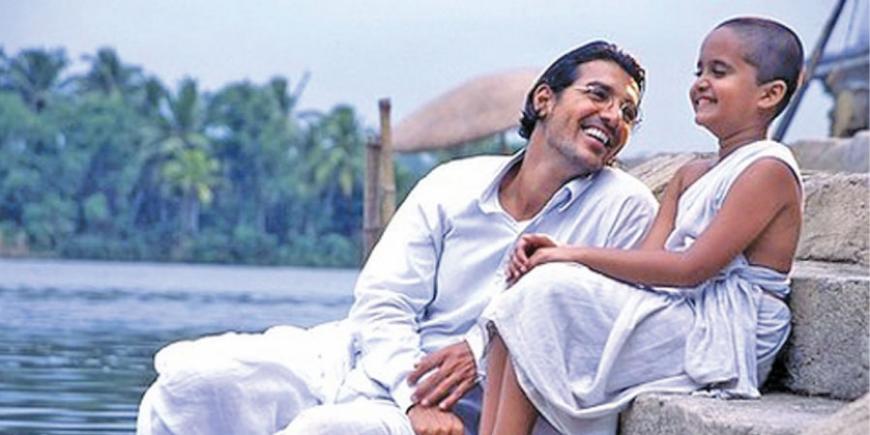
Filmed in Sri Lanka in 2005 ‘Water’ is a film written and directed by Deepa Mehta whose works in cinema focus on women and women’s issues in traditionalist Indian society. ‘Water’ was written as a screenplay by award winning director, writer and producer Anurag Kashyap. This film has among its host of Indian actors, screen stars such as Seema Biswas and John Abraham, and also marked the international screen debut of Sri Lankan child artiste Sarala Kariyawasam who gained repute as a child TV broadcaster in Sri Lanka, notably for her appearance in hosting the show ‘Punchi Panchi’. Set in the times of British colonial India, ‘Water’ shows how ‘child marriage was common practice in the traditionalist Hindu society. The subsequent aspect of this issue is how widows were forced to occupy a lowly status in Indian society as a severely oppressed segment who were seen as ill omens and practically semi-outcastes.
The story shows how Chuyia played superbly by Sarala Kariyawasam is relegated to the fringe of society as a child widow at the tender age of eight when her husband suddenly dies. Garbed in white and her head shaven, Chuyia is sent to live in an ashram, to spend the rest of her life in austerity deprived of worldly comforts in keeping with the practices of widowhood.And thus, the film unfolds strains of stories of the suffering endured by the fourteen women who live in the ashram which is a dilapidated house.
The ashram is ruled by the dictates of a haughty elderly woman named Madhumati. In order to gain income for the ashram through prostitutes a beautiful young widow named Kalyani, is secretly ferried across the river Ganges at night to customers.
Seema Biswas who plays Shakuntala is an enigmatic character. She displays sharpness of mind and a witty tongue and is one of the few widows who can read. Shakuntala’s headstrongness and assertive will keeps Madhumati at bay. Her character shows a dilemma of being a God-fearing, devout Hindu, while also despising the oppression cast on her as a widow and is perhaps reflective of how Indian women were symbolic of transformative society which sought to elevate the oppressed female in traditionalist Indian society.
Chuyia befriends Kalyani, and witnesses Kalyani’s budding romance with Narayan played by Bollywood heartthrob John Abraham. Narayan is a follower of Mahatma Gandhi’s movement and comes from a privileged background. The attraction he feels for Kalyani are strong and genuine but she refuses to believe him. However, though she is reluctant to give into his advances at first Kalyani eventually gets drawn into his idea of marriage and to start a new life in Calcutta.
Chuyia accidentally spills the beans to Madhumati about Kalyani’s affair with Narayan and her plans to run away with him. Madhumati flies into a rage at the thought of losing a source of income and locks Kalyani up. Shakuntala however aids Kalyani to go meet Narayan, who ferries her across the river to take her to his home. However, when Kalyani recognizes Narayan’s bungalow, she realizes that Narayan is the son of one of the wealthy men to whom she had been previously sold as a prostitute. Shocked and dismayed Kalyani demands that he take her back. Narayan learns of what has happened and confronts his father. His father believes it is justifiable for the privileged to exploit the hapless widows. Narayan walks out on his father and goes to the ashram to take Kalyani with him, only to find that Kalyani has taken her own life by drowning herself.
Madhumati sees Chuyia as a new prospect of income for the ashram. Shakuntala learns of this plan but is too late to prevent the child widow from being sold as a forced sex worker. When Shakuntala finds Chuyia, the child is severely traumatized. Shakuntala spends the night comforting the victimized child. She later comes across Gandhi speaking at the train station. As the train departs she spots Narayan on the train and hands Chuyia over to him. The train departs, carrying Chuyia away symbolizing the progressive youth of India moving towards a new world, where the oppressed may have a chance for a new beginning.

